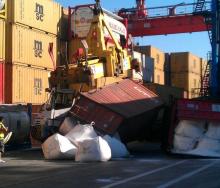Ship arrests, under section 10 of the Admiralty Jurisdiction Regulation Act 1 (AJRA), and business rescue, under section 133 of the Companies Act (the Companies Act), have finally received clarity from our courts.
In the case of Southern African Shipyards (Pty) Ltd v MFV "Polaris" and Others [2018] 3 All SA 219 (WCC), the applicant sought leave to sell the MFV Polaris, a motor fishing vessel, her equipment, furniture, bunkers and cargo in terms of section 9 of AJRA, to pay for repairs it had made to the vessel in February 2016.
On 1 June 2017, the applicant and the ship’s agents entered into an acknowledgement of debt. The agents agreed to pay 50% of the outstanding debt of R2 142 151.15 within seven days.
The applicant arrested the vessel after the agent failed to pay.
The respondent opposed the arrest, arguing that section 10 of AJRA conflicted with sections 128 to 155 and 133 of the Companies Act that cause a temporary stay on proceedings against a company in business rescue. Section 10 of AJRA excludes property arrested for a maritime claim or security (given in respect of such property or the proceeds of any property sold in execution), from property vested in and administered by a trustee, insolvency liquidator or judicial manager. It also prohibits temporary stay in proceedings of property through sequestration, winding up or judicial management.
The agent argued that the Companies Act should prevail over AJRA and that the vessel could not be sold as it was under the control of the business rescue practitioners.
The applicant denied that section 133 of the Companies Act applied to the sale proceedings and argued that the temporary stay proceedings should not result in the vessel’s release.
The court found that the purpose of section 10 of AJRA was to exclude maritime property that was under arrest from the control of a trustee in a sequestration or under administration of a liquidator in a winding up or a judicial manager. It also held that the language of section 10 limited its application to an arrest of maritime property before the commencement of the debtor’s winding up and was applicable to business rescue proceedings.
The court granted the order for the sale of the vessel and found that the section should be interpreted to apply to business rescue proceedings.
This means that once a company is in business rescue, its property vests in the business rescue practitioners and cannot be arrested after the business rescue process commences. However, if the arrest occurs before that point, the property does not fall under the control of the business rescue practitioners.
While it seems that the court has resolved the apparent conflict between AJRA and the Companies Act, it will be worthwhile for the legislature to amend section 10 of AJRA by specifically making reference to business rescue proceedings in order to avoid uncertainty.
By Abongile Swana, Associate, Norton Rose Fulbright South Africa












